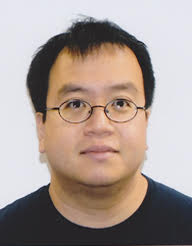The Stephen Smale Prize

The Society for the Foundations of Computational Mathematics was created in the Northern summer of 1995, following the month-long meeting in Park City, Utah, which was principally organized by Steve Smale. The Park City meeting aimed, in Smale's words from the preliminary announcement, "to strengthen the unity of mathematics and numerical analysis, and to narrow the gap between pure and applied mathematics." Smale's vision has been the Society's inspiration for all these years. The journal Foundations of Computational Mathematics was created, several colloquia and research semesters were organized and international conferences are held every three years. After fifteen years of existence, with an established and recognized position in the scientific community, the Society has created the "Stephen Smale Prize" whose objective is to recognize the work of a young mathematician in the areas at the heart of the society's interests and to help to promote his or her integration among the leaders of the scientific community. The first Stephen Smale Prize was awarded at the Budapest meeting in 2011.
The third Stephen Smale Prize will be awarded at the next Conference on the Foundations of Computational Mathematics (FoCM 2017) at Barcelona, between July 10th - 19th, 2017 to
About the prize winner

Professor Lek-Heng Lim, University of Chicago, USA, receives the Smale Prize 2017 for his outstanding contributions to the foundations of computational mathematics. His work seamlessly integrates scientific computing with complexity theory, statistical data analysis, and pure mathematics.
His development of the spectral theory of tensors, his examination of the notion of tensor rank, arising from secant varieties of classical varieties in algebraic geometry, and the ill-posedness of the best low-rank approximation problem (with V. De Silva) indicate some of his groundbreaking achievements. His celebrated results (with C. Hillar) on the almost always NP-hardness of essentially all core tensor problems mark a decisive distinction between linear and multilinear algebra. The following examples hint at the central role of applications and numerical computation as a motivation for essentially all his theoretical results. A proper extension of the notion of nuclear norm of matrices to higher order tensors and related investigations together with S. Friedland are vitally important for the effective use of semi-infinite programming techniques in optimization, computer science and machine learning. Moreover, Lek-Heng Lim has most successfully connected the theory in multilinear algebra with large scale machine learning and statistical estimation. In fact, addressing the challenges of high-dimensionality by tensor methods opens very promising perspectives. His brilliant results (with S. Friedland) on the "complexity of duality" show that for many different types of duality in optimization a problem is hard if and only if the dual problem is hard, vastly extending prior understanding of this fundamental problem. In a similar vein he connects (with his PostDoc K.Ye) Schubert calculus with numerical analysis to define a distance between subspaces of different dimensions which is foundational for the numerical analysis on Grassmannians and facilitates the development of effective subspace learning methods. His pioneering use of discrete Hodge theory in topological data analysis to solve statistical ranking problems (together with X. Jiang, Y. Yao, Y. Ye) is another perfect example of how deep theoretical findings enable challenging applications. Overall, the fact that multilinear algebra has now become a thriving research area is very much due to Lek-Heng Lim's fundamental contributions to both its theoretical foundations and applications. Professor Lim's achievements reflect a stunning level of originality and creativity. In the opinion of the committee his way of integrating theory and applications is in perfect agreement with the spirit of the Smale Prize.
More information can be found here.













